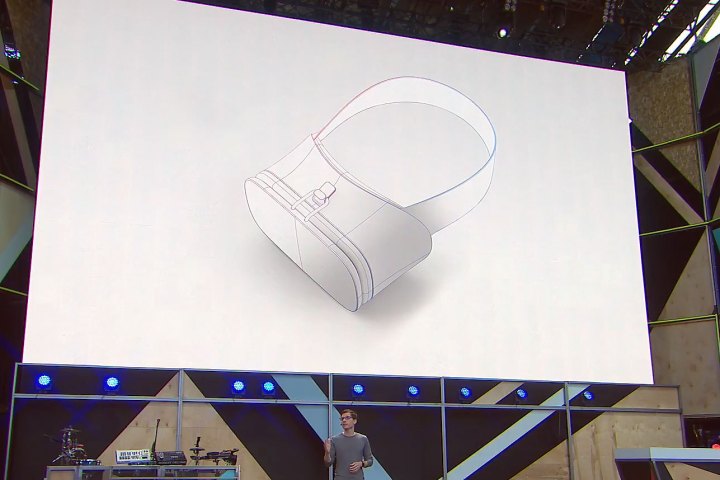
If you haven’t heard of it before, WebVR is a Javascript API that essentially lets you view VR content in your browser. That means you wouldn’t have to download an app just to view those 3D models, but of course, websites have to support it.
On Google’s side of things, Daydream is the search giant’s upcoming virtual reality platform that will house Android VR apps, and it also provides a reference design for headsets, controllers, and smartphones so that the hardware is compatible with the VR software.
You have to take off the headset if you want to view sites that do not have WebVR enabled — but a new feature could change that. According to Road to VR, Google Chrome Beta and Google Chrome Dev on Android have settings for WebVR, and Chrome Dev now lists VR Shell, which Chromium “evangelist” François Beaufort says “allows users to browse the web while using Cardboard or Daydream-ready viewers.”
You can access WebVR and VR Shell by typing in chrome://flags/#enable-vr-shell to trigger it in your Chrome Dev Android browser, though it’s not fully functional yet. Eventually, these two features will make their way to the stable version of Chrome, presumably when Daydream arrives.
Google is also expected to release its own VR headset and controller to support Daydream in the fall, and we assume the new Nexus devices will also be compatible. The search giant is also developing desktop Chrome support for other VR headsets like the Oculus Rift and the HTC Vive.
Editors' Recommendations
- 5 web browsers you should use instead of Google Chrome or Edge
- How this new Quest VR app totally sold me on exercising in virtual reality
- Here’s why you need to update your Google Chrome right now
- 6 Google Chrome keyboard shortcuts in Windows you need to try
- Use Google Chrome on Mac? You need to update now


